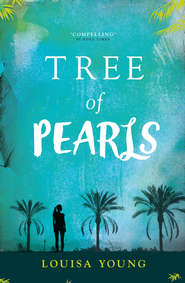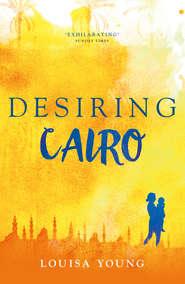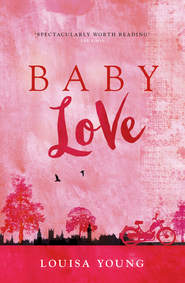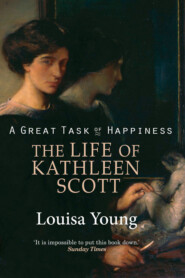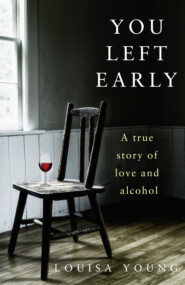По всем вопросам обращайтесь на: info@litportal.ru
(©) 2003-2024.
✖
Devotion
Настройки чтения
Размер шрифта
Высота строк
Поля
Her adoration transferred as easily as a leaf falls. Leaving Mantua with Aldo, she chose to leave behind there her respectable relatives alongside the ancestral innamorato and all that he entailed, and devote herself instead to the future, to faith and trust and the glorious light of the sun, and to the beautiful Italian children she would have with this adorable, important man.
Of course it had not been quite like that. But he worked hard, he kept the family well. And he was so sweet. When he was playing the guitar and Nenna crept up on him and stole his hat, and put his box of cigarillos and matches in it, and sneaked it back on his head and in the joy of playing he didn’t notice, until ten minutes later he would take the hat off and everything would fall out – oh, he made them laugh.
And what had he seen in her? A beautiful girl, who didn’t say much, who adored him. As for so many men, that was enough.
Both Aldo and Susanna considered themselves to be very lucky Jews. They’d met a foreign Jew once who didn’t even believe they were Jewish, because they were so Italian. That amused Aldo very much. He said, in all his travels he’d found that most Italians hardly knew what a Jew was. It made Susanna a little nervous though. To laugh about being taken for a gentile! Things change so fast.
Chapter Five (#ulink_6e8003e3-9b21-50ae-b1d0-6099229c2eda)
Rome, 1929
Kitty, Tom and Nadine went to Rome again the following year, and the one after, and the one after that. All the previous pleasures awaited them, freighted with the added delight of now being familiar. A person could think, this is what I do, because they had done it before and would quite possibly do it again. They could perhaps think, this is where I stay, when I am in Rome. This is the fruit stall I go to. The signora greets me.
Kitty announced that she was Italian. Challenged by Tom, she said, ‘Well, I have eaten lots of Italian food, and breathed lots of Italian air, and drunk lots of Italian water, and I have had lots of Italian lessons to help me talk Italian, so I am made of Italian things, so I am Italian. Partly.’ It made perfect sense to her, and she was annoyed when everyone laughed.
Aldo was working south of Rome, ‘where new cities are rising from the swamps’, Nenna said. Kitty thought of a city like a dinosaur, dripping weeds, lurching up, until Nenna explained. ‘Everybody dies who spends a night in the swamps,’ she said. ‘Papà is draining them, so the poor people can live. Drain the swamps, kill the mosquitoes, build the cities. He has to take a pill every day so the anofele don’t give him malaria.’
One morning, going over to the bakery in Via del Portico d’Ottavia, Kitty observed as if for the first time the great number of churches in this Jewish area. Nenna said: ‘At every gate of the ghetto there was a church, to be easy for Jews to convert.’
Tom asked why they would have to convert.
‘Christians want us to,’ Nenna said. ‘It’s what they most want from us. So they can all go to heaven, I think.’
‘And why does a ghetto have gates?’ asked Kitty.
‘A ghetto is walls,’ said Tom, with one of those looks that made her feel stupid.
‘Oh,’ she said. ‘I thought it was a place.’
‘All the Jews had to live inside,’ Nenna said. ‘Didn’t you know?’ And she walked Kitty and Tom along where the walls had been. She showed them two buildings abutting: one had been inside the ghetto, one outside. They were the same height, conjoined, part of one long wall of buildings along the side of an alley. But the one outside had tall stone-mullioned windows, yellow stucco, and three storeys; the one inside had unframed windows, bare brickwork, and six storeys. ‘The wall was across here,’ Nenna said. ‘Big houses and nice tall rooms out there on Piazza Mattei, low ceilings and people packed in, inside.’
Kitty gazed at it, imagining the wall opening up like her doll’s house, revealing the different levels of floor, the cramped ceilings, the poor families on the left hunched over, ragged and numerous; the rich families on the right swanning on pale carpets beneath chandeliers way above their coiffured heads. Just a wall between the two lives. On one side paintings hang on smooth stucco. Cracks split the other side.
‘It’s not fair,’ said Kitty.
‘Yes.’
‘I’m sorry,’ said Kitty, not quite sure why.
‘Why? You didn’t do it. And you are Jewish too. Your mother is Jewish.’
Kitty got the little dizzy feeling which happened when that topic came up. It was nice to say nothing about the parent situation, and never think about it, just laugh blankly if the matter of hair colour was mentioned, or resemblance (lack thereof). Nobody really expected a child to say or think much anyway.
She looked to Tom. These were their shared secrets, family mysteries which a girl could not address unilaterally. They were not hers to give away.
‘Nadine’s not our mother,’ Tom said. ‘We don’t talk about it much.’
Kitty thought: Nenna might not want to be my cousin any more now.
Nenna said: ‘I won’t tell anyone,’ and waited.
‘Our actual mother ran away and got ill and died, and our father is still a bit sick from the war.’ Tom said it bluntly, amazing his sister. He glanced at her – a flash. ‘We can tell you,’ he said, ‘because you’re like family, and we trust you.’ At this Kitty nodded. ‘Also you’re a foreigner and you probably won’t tell anyone we know at home. At home,’ he said, rather fiercely, ‘it seems that only our family has anything wrong with it. Everyone else seems to be terribly all right. Though of course they may all be covering up too.’
Nenna smiled. ‘People think the English are very cold and calm,’ she said.
‘I wish we were Jewish,’ Tom said. ‘And Italian. More fun than being boring old polite old cold old English …’
‘Let’s be,’ said Kitty, shy to propose a pretend to Tom, who was getting so old now, but then it was his idea – so perhaps—
‘Good idea,’ he said. ‘Nenna, you show us how.’
‘How to be Jewish? You don’t eat salami. You marry other Jews.’ She stopped to think. ‘Do you want to be like us? Or like the proper Jews?’
‘No salami!’ cried Kitty, who had only just discovered it, and felt this was too unfair.
‘Like us then. Bene – it’s easier.’ Nenna pointed to a yellowish church beyond the bakery, and said, ‘I continue your history lesson. That’s where the Jews were forced to go, to listen to Christian sermons.’
‘Sermons are bad enough if you’re Christian,’ said Tom, and they got on to a discussion of hymns, and Nenna sang them a favourite bit of Kiddush, as sung by the Romans, and said yes, she went to temple sometimes, for the special days, Hanukkah and Passover and New Year, because she loved the music, and everybody went, and the cloths were so beautiful, all the gold and silver, brocade and beautiful needlework—
‘But the people aren’t rich,’ Kitty said, and Nenna told her how the Jewish women were the best seamstresses, and the ladies of Rome would give them their old dresses, and the Jewish women would remake them to dress the Torah.
‘Does Susanna do that?’ Kitty asked.
‘No,’ said Nenna, rather vaguely. ‘I said. We’re not really very Jewish now.’
‘Do the other Jews mind?’ Kitty asked, but Nenna didn’t hear; she was leading them to the synagogue. Perhaps Kitty was scared to go inside, to tread on the toes of a different religion that would think she was dirty; some religions she knew didn’t seem to like girls, or foreigners, which was what she was, here – but Nenna took her hand and led her inside. She gazed up: a high ceiling spattered with stars; candelabra covered in pomegranates and bells.
‘Bells to jangle like the hem of the Chief Rabbi’s garment in Jerusalem, so the unclean have the chance to get out of his way,’ Nenna said.
‘And why pomegranates?’ Tom asked, and she laughed and said, ‘Because a pomegranate has 613 seeds.’
‘Why 613?’ he pressed.
‘Because that’s how many different types of Jew there are, and yet we are still one fruit.’
‘You like being Jewish more than your father does,’ Kitty said.
‘Oh, he doesn’t mind,’ Nenna said. ‘And I like the cakes.’ She was still laughing.
Occasionally, through her childhood, Kitty had wanted to know about her mother. But as youngest children always are, she was born into a family already formed before her arrival. Even in a family as unorthodox as hers, there was an existent mood to which Kitty had not had the opportunity to contribute. The fact of her, of course, did – but it was beyond her influence. Julia and her death were not secret or denied, but nor were they much spoken of. As a result, Kitty’s first emotion was insecurity. These parents were not her real parents. They were not really hers. So she would have to work harder to make sure she was loved. She was a warm little girl; it came easily to her. But she never relaxed.
Occasionally, she had asked. She asked Riley first, when she was seven or eight. (She hadn’t wanted to rock the boat by asking Nadine – of course Nadine knew she wasn’t Kitty’s actual mother, but mentioning it out loud seemed rude almost.) It was bedtime, and he had come up to kiss her goodnight. Kitty had dithered between asking what had happened to Julia, and what Julia was like, and decided on the latter. When she produced her enquiry, cautiously, Riley had fallen silent, rubbed at his chin, stroked her head, and finally said: ‘She was very pretty, and she loved your father very much, and she loved you.’ (Looking back on that as an adult, Kitty thought it sounded like the letters people had saying how their fathers had died in the war: bravely, and without suffering. Every one of them.)
A year or so later she asked Mrs Joyce, the cook housekeeper at Locke Hill, what had happened. Mrs Joyce asked her what she wanted bringing that up again, it had been very sad but what’s done was done, now get out from under my feet there’s a good girl. So Kitty had plucked up an immense courage and asked Peter, one day when he was quiet in his little house in the woods. She remembered it clearly: he had been on his big old chair where he always was, and she had run in and said, ‘Tell me about Mummy.’ He had turned his head a little towards her, and without hesitation said, ‘She was too good for me.’ Kitty had pressed: ‘Tell me a story about her.’ And he had shaken his head, sucked his cheeks in, and fumbled for a cigarette. ‘No,’ he had said. ‘Oh no.’
For a while that was all she had. Her mother was beautiful, she loved Peter, she was too good for him. It was sad, and nobody would talk about it. So after a decent interval she picked up her courage again and took this information to Tom, the beloved, the older, the all-knowing, the unreliable. He had smiled at the question, realising his power, and then sat her down with great seriousness, and sworn her to secrecy. He was always doing that. It added to the importance.
‘Kitty,’ he said, ‘I am sorry to have to tell you this. Our mother was no good. I remember her clearly. She was very beautiful with golden hair, but she was no good. She upset Father by never leaving him alone. She let her mother steal me when I was a baby. She ran away from home without telling anybody. She was always crying and being selfish. And then she did a very terrible thing which you must never mention.’ Kitty squirmed, and promised. ‘She did something terrible to her face,’ Tom said. ‘She sort of burned it off with chemicals, and after that she looked like a terrible frightening clown.’






